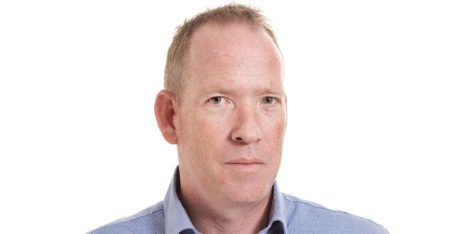 Microsoft has missed a self-imposed deadline to launch two Azure cloud data centres in South Africa, one in Johannesburg and the other in Cape Town. But the company has promised they’re coming this year.
Microsoft has missed a self-imposed deadline to launch two Azure cloud data centres in South Africa, one in Johannesburg and the other in Cape Town. But the company has promised they’re coming this year.
The US software giant had originally said it would launch the facilities during 2018. TechCentral was not immediately able to establish the reasons for the delay, though there is market talk that Microsoft cancelled plans to launch in late 2018 due to the inability of a third-party supplier to deliver to specification (an issue now apparently resolved).
A source who claims to have knowledge of the situation said there is a good chance that Microsoft could launch the Azure facilities in the first quarter of 2019.
The software company first announced its plans to build the data centres — the first Azure facilities in Africa — in May 2017. It said at the time that “initial availability” of the Microsoft Cloud, delivered directly from the local data centres, would happen in 2018. It was expected that this initial launch would provide Azure, Office 365 and Dynamics 365 services to local customers.
Ashleigh Fenwick, a spokeswoman for Microsoft South Africa, told TechCentral on Monday that work is progressing on the data centres. However, she said the company can’t share a detailed update on the progress or exactly when the services will be launched commercially.
“We’re focused on building the right solutions for our customers and are working towards availability of our new enterprise-grade cloud data centres in South Africa in 2019,” Fenwick said, adding that Microsoft is building an “unprecedented level of infrastructure” locally.
‘Incredible innovation and growth’
When Microsoft announced the plan to build the data centres in 2017, the company’s corporate vice president for Azure and Security, Julia White, said it made sense to invest in infrastructure in Africa given the “incredible innovation and growth” taking place on the continent.
The local data centres will offer “enterprise-grade reliability and performance and local data residency, which is very important for African companies”. The facilities will “improve services from Cairo to Cape Town”, she said.
Since then, Microsoft’s biggest global cloud computing rival, the Amazon.com-owned Amazon Web Services, has announced it plans to open data centres in South Africa, with the first to go live next year in Cape Town.
 The new AWS “infrastructure region” will be launched in the first half of 2020 and will allow customers to run workloads in South Africa and serve end users across the African continent with lower latency, Amazon said in a statement in October 2018.
The new AWS “infrastructure region” will be launched in the first half of 2020 and will allow customers to run workloads in South Africa and serve end users across the African continent with lower latency, Amazon said in a statement in October 2018.
The new region is the latest in a series of AWS investments in South Africa. In 2004, Amazon opened a development centre in Cape Town that focused on building networking technologies, next-generation software for customer support and the technology behind Amazon EC2.
AWS has also built local teams including account managers, customer service representatives, partner managers and solutions architects to help customers move to the cloud. In 2015, AWS opened an office in Johannesburg, and in 2017 brought the Amazon Global Network to Africa through AWS Direct Connect.
In May 2018, AWS continued its investment in South Africa, launching infrastructure points of presence in Cape Town and Johannesburg, bringing Amazon CloudFront, Amazon Route 53, AWS Shield and AWS WAF to the continent and adding to the 138 points of presence AWS has around the world.
In November 2018, Chinese technology giant Huawei also revealed plans to create a cloud region in South Africa. It will use the South African facility to provide cloud services to countries in Southern Africa and said it also plans to unveil more new regions in Africa in time.
Mark Walker, associate vice president at International Data Corp in sub-Saharan Africa, said the local data centre market is “hotting up” with the announcements from AWS, Microsoft and Huawei. It is poised to be an interesting year in the cloud computing space in South Africa. — © 2019 NewsCentral Media




